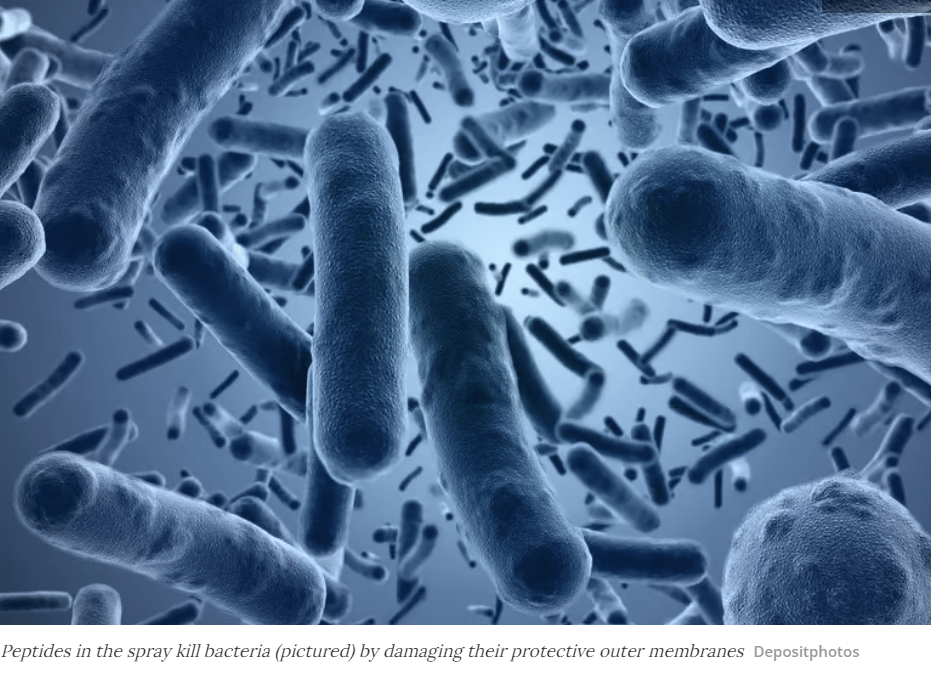Antibiotics are used to treat and prevent infection, but if a wound is not treated, harmful bacteria can develop a resistance to them. a new wound-treatment spray could help, as it kills bacteria using peptides that occur naturally in our bodies – no antibiotics required. while previous studies had explored the use of such peptides for eradicating bacteria in medical applications, a major stumbling block lay in the fact that the peptides quickly break down upon coming into contact with blood or other body fluids.

Building on the success of an earlier project, scientists at Sweden’s Chalmers university of technology developed a workaround to that problem.
In the spray that they created – which is intended to be applied directly to open wounds – the peptide molecules are attached to specially structured microparticles of hydrogel. That gel protects the peptides from the blood, while still allowing them to destroy bacteria by compromising the microbes’ protective outer membranes.
As an added bonus, because the spray does kill bacteria in this particular manner, it is believed that the bacteria won’t develop a resistance to it.
In lab tests, the spray was found to kill 99.99% of bacteria on contact, including antibiotic-resistant types such as mrsa (methicillin-resistant staphylococcus aureus). What’s more, it remained effective for approximately 48 hours.
Scientists are also looking into using the spray to coat medical implants, to keep infections from occurring when the devices are first placed within the body. They have already tested it on the silicone which is commonly used for catheters.
“The substance in this wound spray is completely non-toxic and does not affect human cells,” said doctoral student Edvin Blomstrand, one of the lead authors of a paper on the study. “Unlike existing bactericidal sprays, it does not inhibit the body’s healing process. The materials, which are simply sprayed onto the wound, can also kill the bacteria in a shorter time.”
The paper was recently published in the journal ASC applied bio materials.
